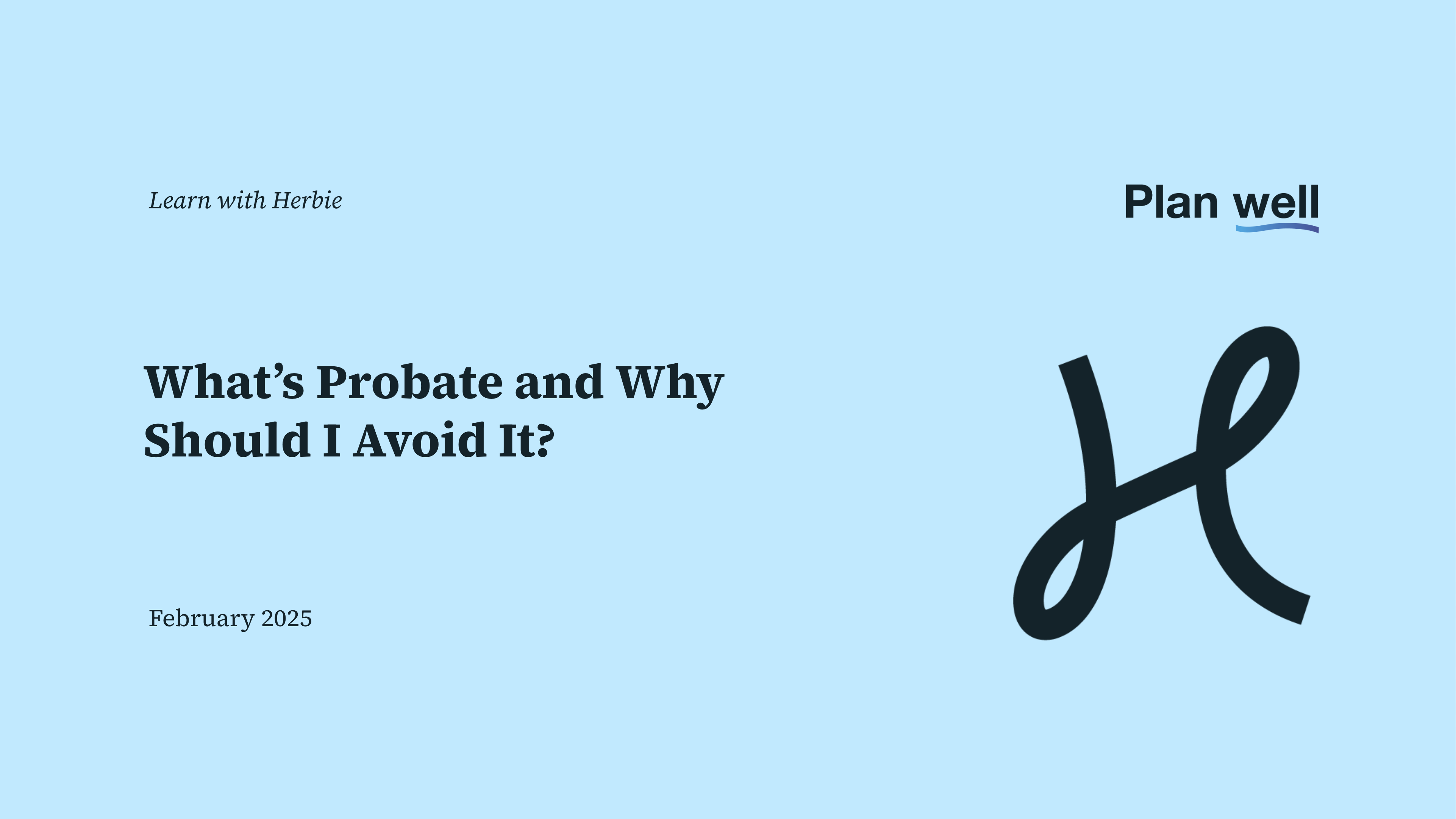When someone passes away, that person’s assets need to be distributed. During life, transferring assets to someone else usually requires signing documents like deeds or account forms. After death, this process still needs to happen—but since the person is no longer around to sign, someone else has to handle it. That’s where probate comes in.
What Is Probate?
Probate is a court-supervised process that ensures a deceased person’s assets are distributed according to his or her wishes (as outlined in a Will) or state law (if there’s no Will). A judge reviews the Will, confirms its validity, and oversees the distribution of assets. Historically, probate was essential to prevent fraud, duress and other issues that could arise with estate administration (especially when people were illiterate and couldn’t sign their own name). While probate is still an integral part of the estate administration process, probate has many challenges. As a result, many people take steps in their estate plan to minimize exposure to probate as much as possible.
Why People Try to Limit Probate
Probate is Time-Consuming
- Slow Process: Probate can take months or even years to complete. The court process is often delayed due to overwhelmed and underfunded local courts.
- Delayed Inheritance: Assets subject to probate cannot be distributed until the court officially appoints an Executor, leaving family members waiting months (or longer) for their inheritance.
- Multiple Jurisdictions: If you own property in another state (like a vacation home), you may need to go through an additional process called ancillary probate in that state, adding even more delays.
Probate is Expensive
- Lawyers: Beneficiaries and Executors often need to hire lawyers to help navigate the probate process, file paperwork, and appear in court.
- Lots of Fees: These legal fees, along with court costs, Executor fees, and administrative expenses, can quickly add up, reducing the estate’s value and the amount inherited.
Probate is Public
- Lack of Privacy: A Will becomes a public document once it enters probate. Anyone can access it, meaning your financial and personal matters are no longer private.
- Family Disputes: If there’s conflict among family members, probate proceedings could attract unwanted attention, including media coverage or social media discussions.
Probate is Court Supervised
- Limited Control: The court’s oversight means you’re subject to the judge’s decisions, which may not align with your wishes.
- Strict State Laws: State inheritance laws are rigid and may not reflect your desired outcomes.
- Minors Inheriting Assets: If minors inherit assets through a Will, the court may oversee their guardianship and the management of their inheritance until they become adults. This adds time, complexity, and expenses to the process, potentially lasting for years.
How to Limit Probate
Structuring around probate starts with understanding which of your assets are subject to it. Assets like jointly-owned property, accounts with named beneficiaries, and those held in a trust can bypass probate entirely. Here are the key steps:
- Identify Probate Assets: Learn which assets require probate and which pass directly to beneficiaries without court involvement. Check out our article addressing that topic: Beyond the Will: The Many Ways Your Assets Get Distributed.
- Create a Revocable Living Trust: By placing assets into a trust during life, you can ensure they are distributed according to your wishes without going through probate. You’ll have full control during your lifetime, and your designated trustee will handle the process after you’re gone. Learn more in our article Revocable Living Trusts: Benefits for All, Not Just the Wealthy.
With the right planning tools, like those available through Herbie, you can protect your estate, save your loved ones time and money, and keep your affairs private.
